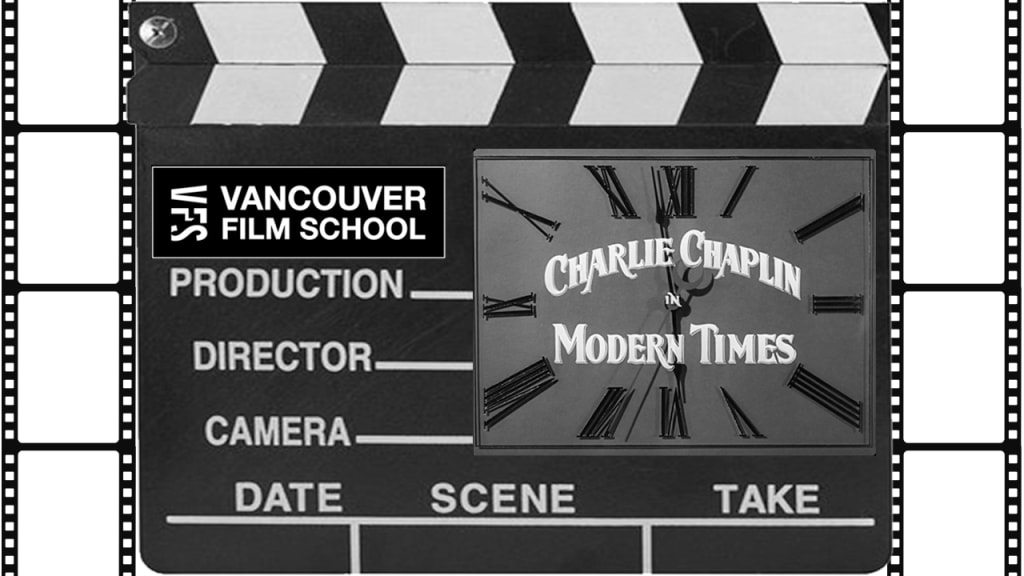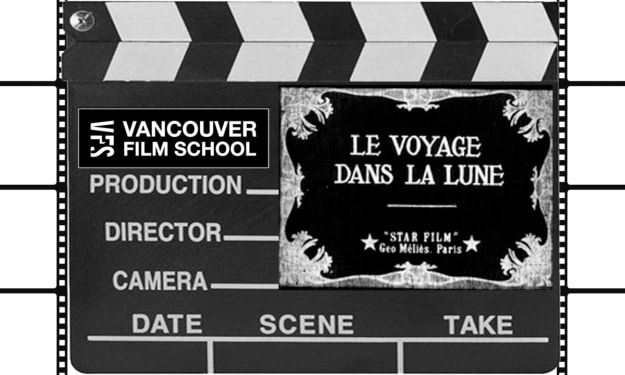Modern Times (1936) Review
Film School Firsts #2

Modern Times (1936), is an American comedy feature film written and directed by Charlie Chaplin. It was written at a time in which “the talkies” were becoming increasingly popular and was Chaplin’s last ‘silent’ film, although there is limited dialogue (I’m unsure if it was in the original but, given the time it was produced, I could imagine it being part of the film – I think it could’ve worked without but it did add to the characters).
The story follows Chaplin’s character, a factory worker known as ‘Little Tramp’, and his struggle to survive, and achieve his seemingly simple goal, in the fast-paced industrial world where unemployment is wide spread. The opening is a seemingly random shot of sheep being herded, which fades into shots of the commuting workforce. There are plenty of wide, establishing shots of streets with many extras (taking producing, I’m of course thinking about permits and release forms). But it blends well and shows the metaphor clearly.
Credits are included in the opening, which I actually enjoy. I feel like it adds to the world building in a strange way. It introduces the audience to the production world and the key players in it, then into the film’s world, and the characters. Almost like, easing you in from reality.
Another reason I like some credits at the beginning is because people have to watch them. I am one of the few that stay even when there is no after credits scene (i.e. until the official end).
It surprises me how many people leave when they’re at the end (even if there is an after credits scene)! I mean, where are you rushing off to? You had time to spare buying snacks, you were here in time for ads and a whole movie but you can’t spare another 2 minutes to see who was involved and point out interesting names or positions to whoever you came with? It’s the only time you’re allowed to talk audibly when the film is playing. Plus you get to know the name of the song that will be in your head for the next week.
And so I rest my case for credits.
I was slightly worried at the beginning because this is a comedy film, with lots of slapstick, which is very much my humour and I wasn’t finding it funny. My primary emotion was sympathy for Little Tramp, I just felt so sorry for him, then a little scared for him, then a little scared of him. And I could see in these moments that some were meant to be comedic, which is why I was worried that maybe this wasn’t my humour.
But there was no reason to worry (as is often the case). I did laugh (out loud) and was smiling throughout. The skill in the humour of this film is that it adds to the story. The funny moments don’t lack any meaning and include some of the most stressful scenes I’ve seen in my life.
The humour throughout is quite silly, but even some silly humour is quite clever. I’ve always found comedy to be a tough line to walk. There is a fine line between comedy that works and comedy that doesn’t. And then, of course, different people have different humour so what works for one will often not work for everyone (the exception, I find is accidental, short term, not serious, often self-inflicted, pain; when it happens to someone you know/care about – but maybe that’s just me). But I feel like most comedy has a certain intelligence to it. Even if that's just knowing that something's stupid and ridiculous and therefore funny.
Aside from the humour, similarly to Le Voyage dans la Lune, I was really impressed with the sets. They provided exactly what was needed for the story, in both wide shots and close ups, the detail was in the right areas. In addition to that, they were also functional. Now, if you know anything about me, you know that I appreciate multi-functional things, especially when one function is aesthetic (clothes with storage capability? Sign me up!). Maybe I’m easily impressed but I enjoy it when the set moves, or an actor interacts with it. I feel like it helps immerse the audience. They’re not just watching people act in front of a backdrop, they’re watching a character navigate their world as they would.
Speaking of acting, there is a reason that so many people know the name ‘Charlie Chaplin’. I only found out this year that he also wrote and directed. Not just he, but the whole cast had such emotive acting. It was so clear what they were doing and saying (and feeling!) that there was almost no need for intertitles. The intertitles emphasised key dialogue and made sure the story was revealed successfully.
There were so many themes within this film, and many still relevant today. Topics came up such as workers rights, unemployment, ‘riots’ and even police escalation. I’m surprised that I’m still surprised by issues that come up in media from years ago that are applicable today. Truly, there is nothing new under the sun. I should expect it at this point.
As a side note - waiting on tables is not easy, any service job really. Actually any job – that’s why you get paid to do it. I don’t understand valuing some jobs less than others, or saying one job is harder than another. I can see that there is some truth in that, some jobs do require more training than others, some demand longer hours or greater physical or emotional strength. The thing is that each person is different, they have different strengths and different interests, and so each job suits different people. We also need people in each job so that we can do our jobs, and not theirs.
But I digress (a lot apparently).
Modern Times is a great example of how comedy can be delivered without dialogue. Without sassy remarks or clever punchlines. There are films that I love and find absolutely hilarious but they don’t have the same kind of impact as films like Modern Times because they rely on dialogue to deliver jokes. And comedy is so much more than jokes. Saying that, I cannot write jokes, I am not saying jokes are easy by any means. The comedy in this film is not found in laughing at our protagonist but in identifying with him. This provides the tension required for comedy to work. There’s something at stake, we want him to succeed.
This story is well told, funny and relevant (again, something that adds to comedy). This film inspires me to think about how I write comedy. I often struggle with comedy. Everything I want to watch is a comedy but I end up writing dramas! At least, I used to only want to watch comedy, I have since accepted the merit of other genres and branched out slightly more willingly.
Again, I’m thinking about what more I can do creatively and visually, that really is film's core I suppose. This film really impresses upon me, not just the importance of character but, the importance of the audience sympathising or relating to the character.
Also, what I was recommended to watch next was the show Modern Family, which gave me a good laugh (the suggestion to watch it after Modern Times, not the show – I haven’t seen the show).
About the Creator
Mary Nichols
Aspiring story teller and artist






Comments
There are no comments for this story
Be the first to respond and start the conversation.